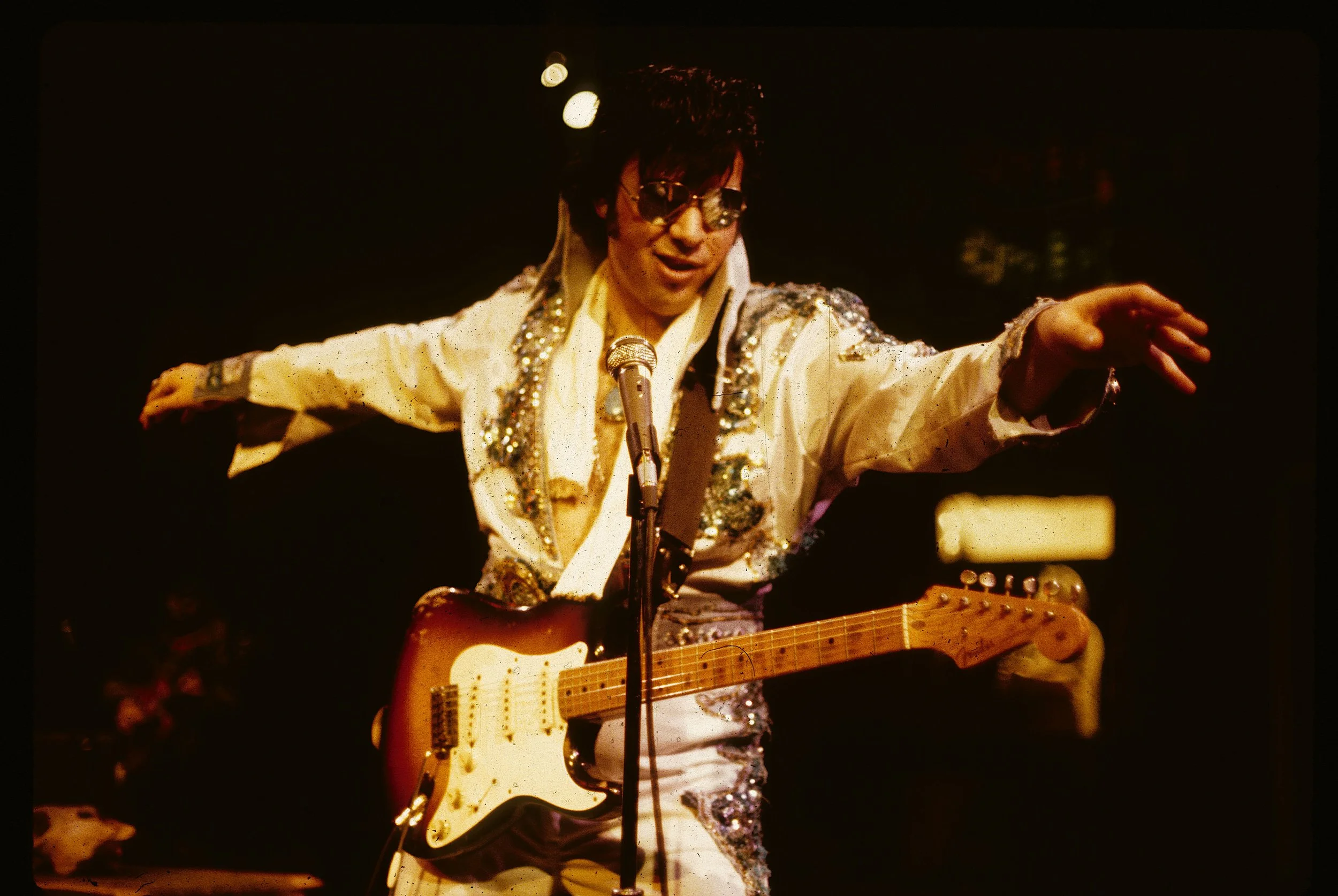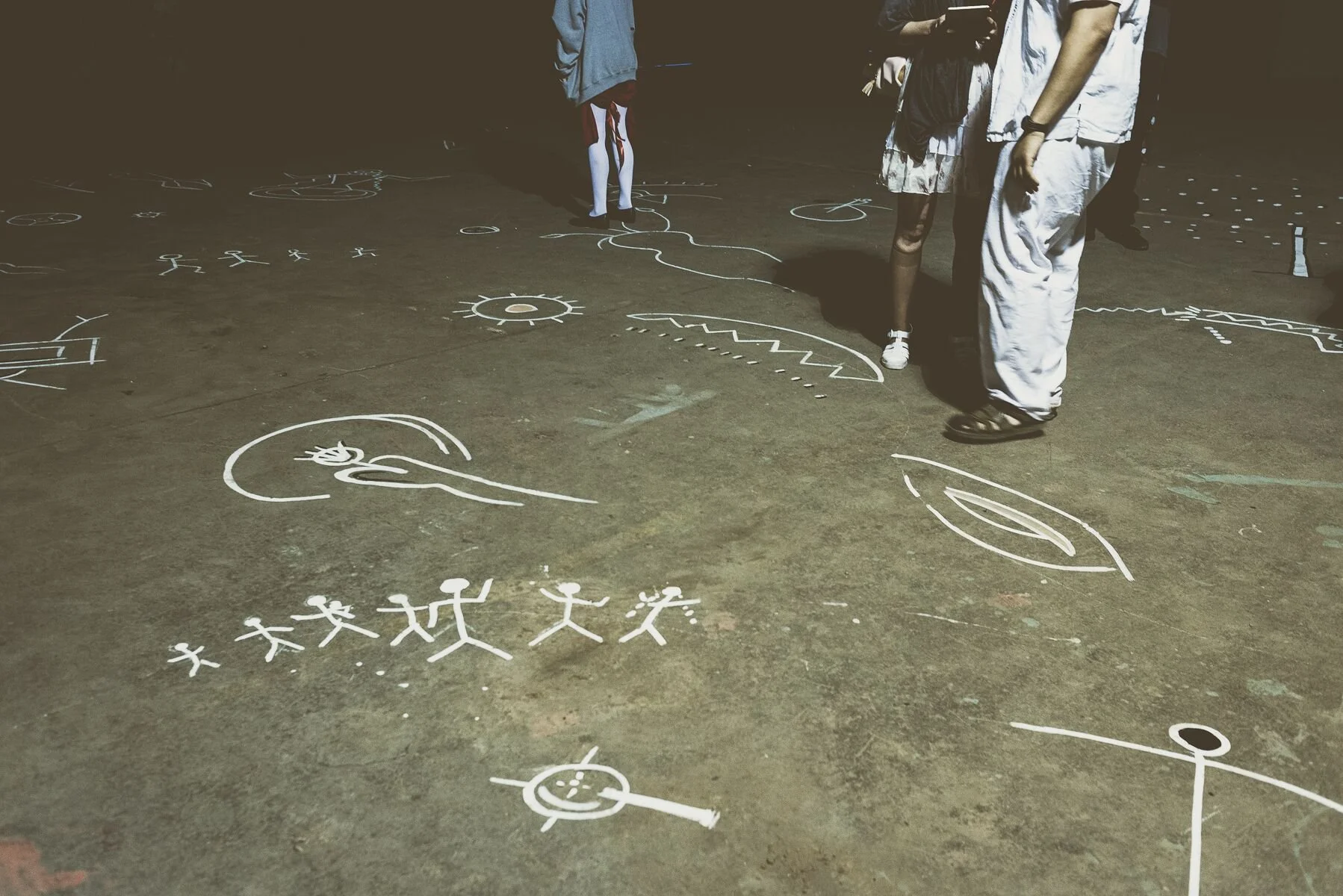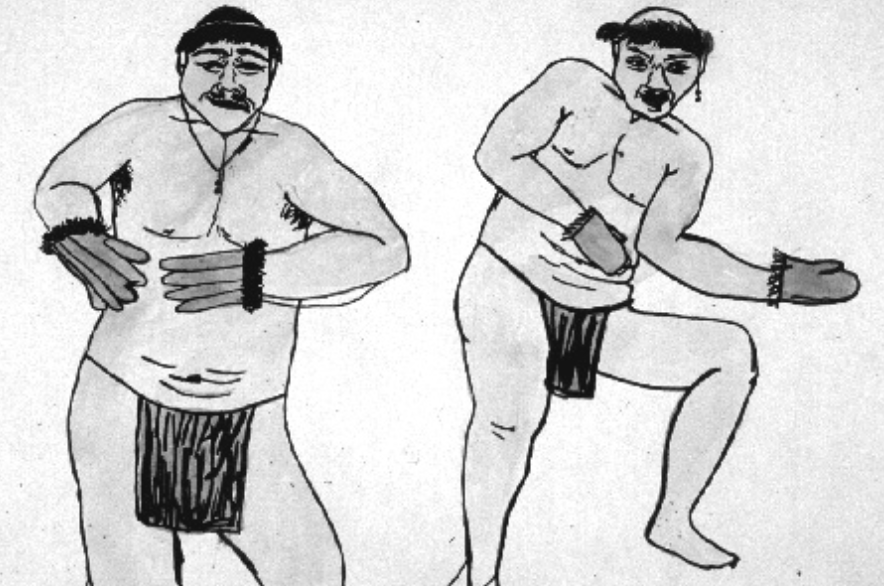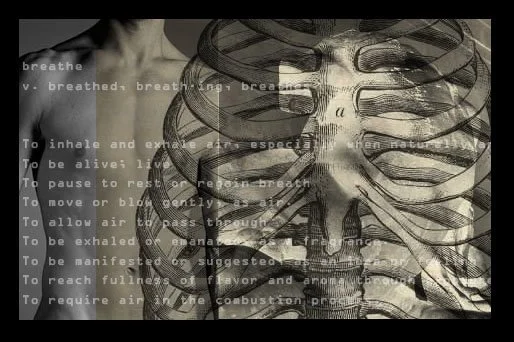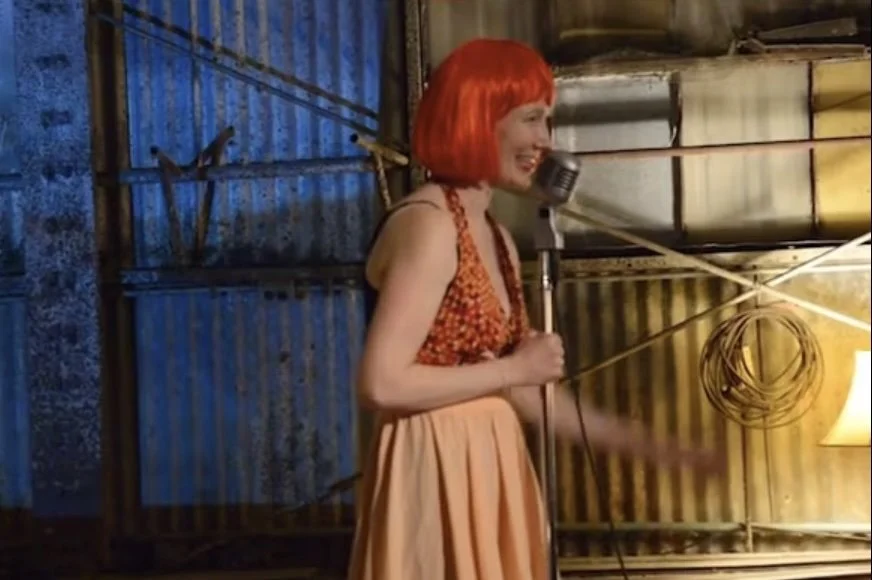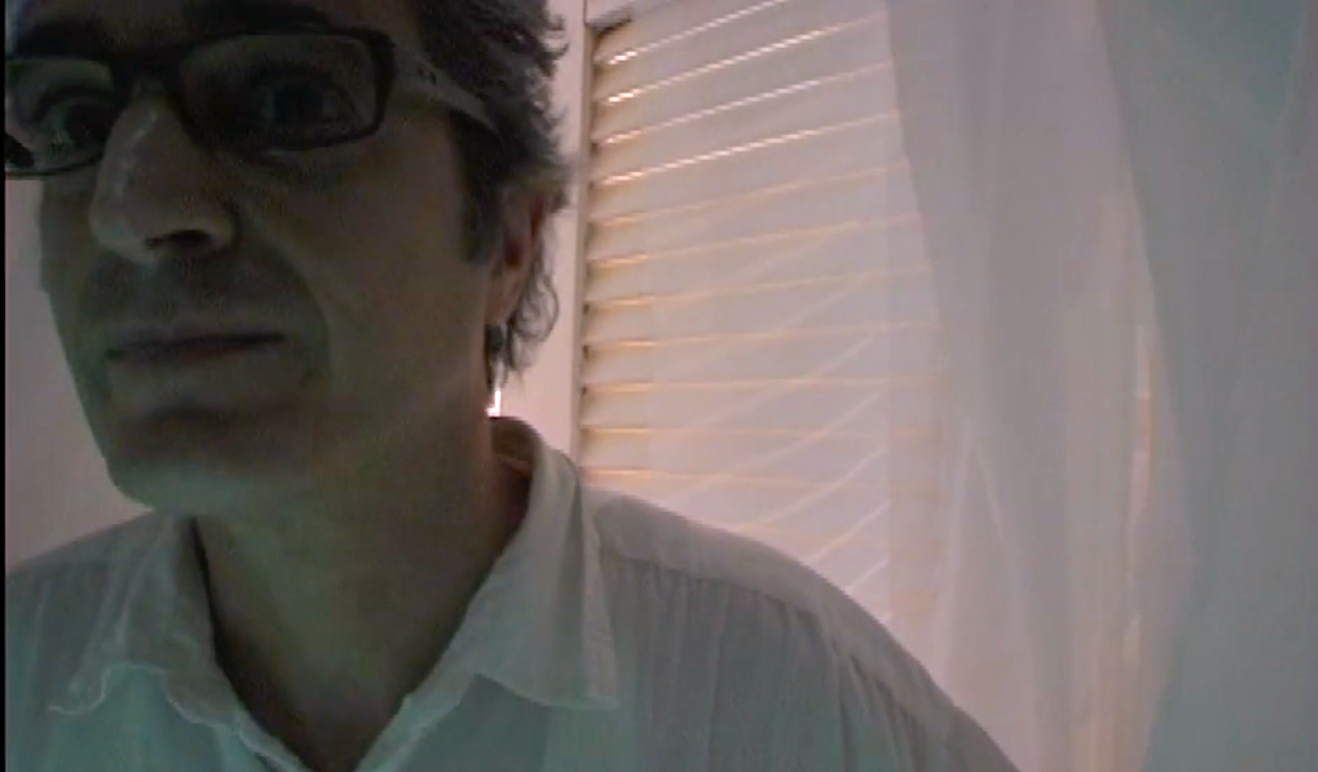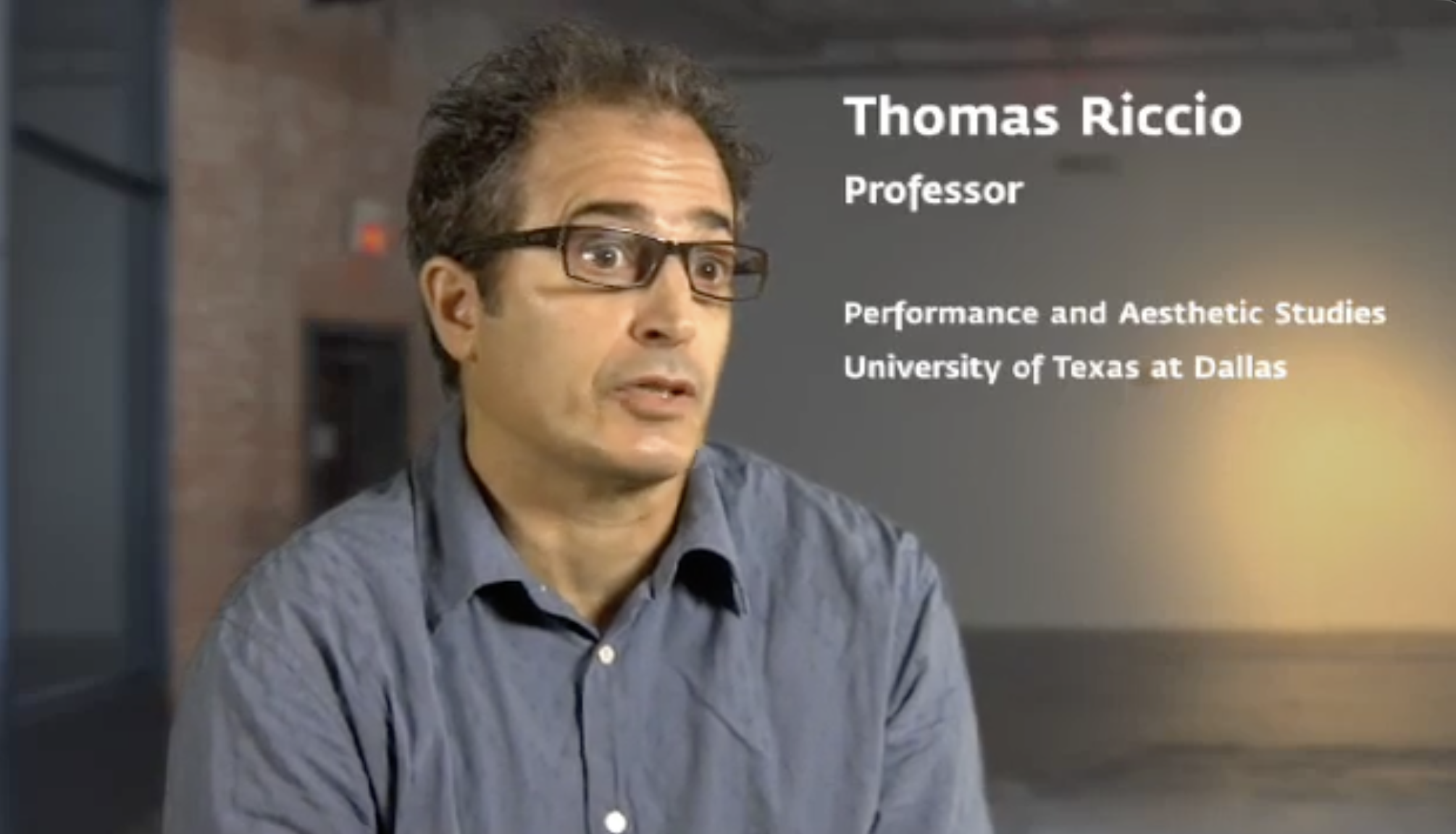About
The world that Riccio has created is masterful. As we have come to expect of him, the artistic vision is beyond well-executed.
—Arts & Culture Texas
Photo: Ran Jiao
Artist Statement
I navigate a complex path, feeling divided and using intuition and analogy. I look for connections in small events and pay attention to coincidences, random conversations, and unusual sources of information. This helps me see deeper patterns. By blending traditional ways of thinking with symbolic insights, I notice divine and destructive forces around me. I see myself as a thoughtful skeptic, balancing logic with ancient perceptions, myths with modern ideas, and reason with imagination. I focus on observing and exploring experiences, enjoying the chaotic flow until something surprising emerges. And then I find a way to give it expression.
I am a post-humanist, and I see my work as a way to heal and to engage in dialogue with the world, other humans, and other-than-human beings.
Publications
Riccio's book is more than a technical or biographical study of Sophia. It offers a broad reflection on human-machine coevolution, the performative nature of robotic identity, and the philosophical, anthropological, and social issues this new symbiosis raises.
DP92 / Dead White Zombies / Writer-Director-Installations
Emandulo / Kwasa Group / South Africa / Devised-Director
Factory Girl / Animated film
Biography
Writer, Performance Maker, Installation Artist, Experimenter, and Ethnographer
I grew up in a working-class Italian American neighborhood in Cleveland, Ohio—steel mills, union halls, the smell of industry. I worked as a merchant seaman and got involved with the Teamsters and Steel Workers. Those were my first stages, long before the tundra of Alaska or the shamanic fires of Siberia. I carry that Cleveland grit with me everywhere: the restlessness, the stubborn belief that something vital hums beneath the surface of ordinary life.
I earned my BA in English Literature from Cleveland State University and my MFA from Boston University, then studied Performance Studies at NYU under Richard Schechner. He’d later call me “a harbinger” and “a person who incarnates the intercultural problem/opportunity.” I’m still not entirely sure what that means, but I think it has something to do with the fact that I can’t stay in one place—geographically, culturally, or intellectually.
The Journey
I’ve spent four decades moving between worlds. Fifteen years in Alaska, where I directed the Alaska Native performance group Tuma Theatre and learned what it means to make work that matters to a community. In Siberia, the Sakha honored me as a Cultural Hero—one of the strangest and most humbling moments of my life. In the Kalahari Desert, I worked with eight !Xuu and Khwe Bushmen healers to create a ritual addressing the loss of their culture. In St. Petersburg, I devised “Shadows from the Planet Fire” from pre-Christian Slavic rituals with the Metamorphosis Theatre. In Addis Ababa, Seoul, Durban, Zambia—everywhere I go, I’m searching for the same thing.
I’ve directed over a hundred plays and performances at places like LaMama ETC, The New York Theatre Workshop, the Teatro di Roma, and the National Theatre of Sakha. I served as Dramaturg and Resident Director at the Cleveland Play House, Assistant Literary Director at the American Repertory Theatre, and worked as Robert Brustein’s research assistant at Harvard. I was Artistic Director of Chicago’s Organic Theater Company, where I created several experimental works that taught me how far you can push an audience before they push back.
Teaching has taken me around the world: the University of Dar es Salaam in Tanzania, the University of Nairobi, the University of Pondicherry in India, Tribhuvan University in Nepal, Addis Ababa University, the Korean National University for the Arts, and Jishou University in Hunan, China, where I’ve spent years doing ethnographic fieldwork with the Miao people. Currently, I’m a Visual and Performing Arts professor at the University of Texas at Dallas.
The Dead White Zombies
In Dallas, I founded Dead White Zombies. The name says it: an attitude toward the dominant culture—already dead but still wandering around, consuming everything. With DWZ, I create immersive performances that refuse theater’s polite distance. We treat theater, ritual, performance art, installation, meditation, sound, and drama therapy as overlapping languages for the same urgent question: what does it mean to be human now?
We live in a mobile and transitory world, and the old form of theater—people sitting in the dark watching the illuminated mind—feels like a relic to me. I want to put people in the thick of it, make them examine their own value systems, and the American assumptions they’re not even aware of.
The Robot Question
People are sometimes surprised to learn I’ve spent years working with robots. From 2005 to 2011, and again from 2018 to 2019 as Creative Director, I worked at Hanson Robotics as a Narrative Engineer, developing “personalities” for their conversational social robots: Bina48, Zeno, Joey Chaos, Swami, Einstein, Jules, and Sophia. But to me, it’s the same work I’ve always done—finding what animates, what makes presence possible, whether the vessel is a Yup’ik dancer, a Zulu performer, or a humanoid machine learning to smile.
My book Sophia Robot: Post Human Being came out from Routledge in 2024. My next book, Performing Body, Space, and Place: The Cosmocentric Way, is due from Routledge in 2026.
Hubs of Memory
I call them “Hubs of Memory”—the places where ancient and modern expressions reveal themselves as the same gesture. A German newspaper once wrote that there’s something linking my work with the Inuit, the Elvis cult in Cleveland, and the tribal performances of Zambia. They called it “a split identity between old and new expressions, but they are all still, at their core, rites and idolatry trying to influence and make sense of our everyday life experience.” That’s as good a description as any.
I’ve published in the world’s leading theatre and performance journals and received various international grants, fellowships, and awards, including the International Distinction Prize in Playwriting from the Alexander Onassis Foundation. My play Rubber City was performed at the Kleist Theatre in Frankfurt. I was a fellow at UCLA’s APEX (1999), artist-in-residence at Toolik Field Station in Alaska (2003), Halka in Istanbul (2014), the Watermill Art Center (2016), and the Santa Fe Institute (2024). I served as dramaturg for Sibyl Kempson’s 12 Shouts for the Ten Forgotten Heavens at the Whitney Museum from 2016 to 2018. In 2021, I performed in a sacred cave during a residency at the Ionian Art and Culture Center in Greece—one of those experiences that makes you wonder why you ever do anything indoors.
Current Work
Right now, I’m finishing a multi-year ethnographic study with the Miao people of southwestern China. My documentary Huan Nuo Yuan has screened around the world, and I’m currently filming the Zhui Nui Water Buffalo Ritual. I also acted in Wedding Dresses (2016), a feature film in Chinese and Miao languages—my first time in front of the camera for something that wasn’t documentation. My 10-channel video installation, Dragon Eye, was displayed at SP/N Gallery in 2024. And working on Big Bird for DWZ, which will premiere in Dallas in May 2026. My book, Performing Body, Space, and Place: The Cosmocentric Way, will be published by Routledge in June 2026.
I am deeply intrigued by your work, and admiring of so much of it. You are a unique character with your far-reaching theatre work and travels. But you are also a harbinger. And a person who incarnates the intercultural problem/opportunity.
—Richard Schechner, TDR/The Drama Review
Press
Coming May 2026: Big Bird
My experimental performance practice blends with my work with Indigenous people and performance, which references my scholarly and ethnographic work in ritual and shamanism, and is then influenced by my work with humanoid social robots. Somehow, it all works. It is like a non-stop party in my head. It’s fun, full of unexpected, mind-altering surprises with explosions of revelation.
— from an interview, Dallas Observer
Thomas Riccio loves to experiment. His reputation is so good that when he starts to dabble, people ought to pay attention.
—The Cleveland Plain Dealer
Career Overview
He asks the Sakha people to search in themselves, their experiences and memories…Judging by what we were shown, it is not very difficult to make him an equal with a master.
—The Echo / Republic of Sakha, Siberia
Trickster
The Work of Thomas Riccio
A documentary film by Patrick Dowling
WEDU PBS
To hear reports of his latest excursions into the unknown is like coming into contact with a high-voltage line. The difference is that the shocks he gives us are life-giving, charging our spiritual batteries.
— Teatern / Swedish Theater Magazine
Wedding Dresses
A film by Peng Jinquan
Featured Actor
Film Trailer
African Performance
Lecture
Dallas Museum of Art



